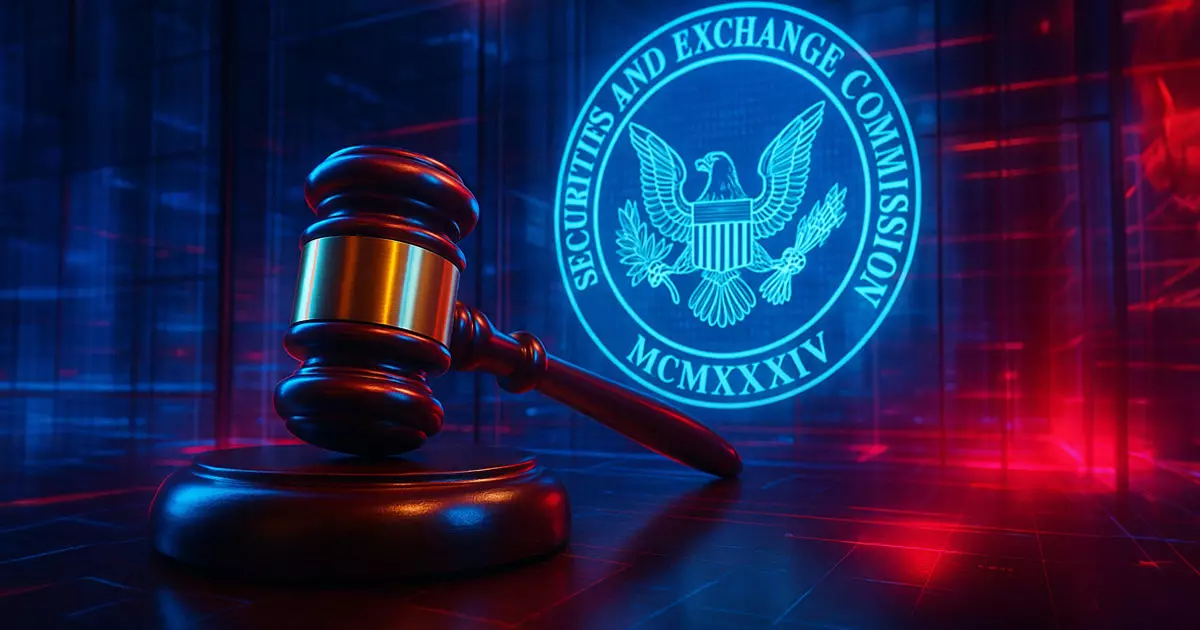The recent departure of Gary Gensler from the Securities and Exchange Commission (SEC) was widely interpreted as a potential turning point for the beleaguered crypto sector. However, observers like Justin Slaughter, Paradigm’s vice president of regulatory affairs, contend that the enforcement-heavy tactics pioneered under Gensler’s tenure have not subsided; they’ve merely been redirected. Instead of a relaxing grip from federal regulators, what we’re witnessing is a concerning escalation of legal actions at the state level, particularly against major players like Coinbase.
It’s perplexing to observe how the political landscape can influence regulatory actions. During transitions, it’s typical for outgoing officials to give a nod to state actors, urging them to pursue unfinished agendas—essentially leaving a legacy of ongoing disruptions. Slaughter’s insights reveal that state attorneys general are picking up the mantle in a relentless pursuit of regulatory enforcement. Not only does this pose immediate challenges for the crypto industry, but it indicates a broader strategy that exploits the regulatory void at the federal level.
The Oregon File: A Blueprint for State-Level Enforcement
A prime example of this shifting battlefield is the lawsuit filed by Oregon’s Attorney General against Coinbase. Though Oregon initially refrained from joining the coalition of ten states that sought to sue the crypto exchange, it has since crafted its own lawsuit. Slaughter’s observations indicate that this legal action closely mirrors the SEC’s initial complaint, encapsulating the essence of state-level enforcement strategies.
What stands out in Oregon’s complaint is the deliberate, targeted revisions aimed at reducing reliance on the colloquial and contentious term “crypto asset securities.” Instead of echoing the SEC’s terminology verbatim, which comes embedded with heavy critiques from the crypto community, state regulators appear to be reshaping their language. Yet does this alteration signify a genuine desire for clarity, or is it merely a tactical maneuver? The reduction of references to such contentious terms illustrates how state lawmakers and regulators may be trying to carve a niche for themselves, irrespective of federal positions.
Legal Limitations and the Risk of Fragmentation
Regulatory enforcement through state action yields a host of complications. State attorneys general often operate with fewer resources than their federal counterparts. The complexity of launching a well-researched, detailed case is magnified at the state level, making outcomes even more unpredictable. Each state has a unique legal infrastructure, which consequently leads to divergent rulings on similar issues. How do we expect to foster an innovative and dynamic crypto industry when it is subjected to a quagmire of inconsistent state laws?
Slaughter has drawn attention to the structural hurdles that these varying legal standards create for crypto companies. Without a cohesive federal regulatory framework, we are setting the stage for a fragmented landscape, where firms could face escalating litigation risks distinct to each state. The implications are concerning—crypto firms may find themselves entangled in a web of overlapping rules and varying judicial interpretations, making compliance a nearly Herculean task.
The Road Ahead: Congress and the Need for Integrated Legislation
The current trajectory of enforcement suggests that Congress is sleepwalking into a chaotic regulatory scenario. The more time lawmakers spend in indecision, the more fragmented and convoluted the operational landscape for crypto companies will become. Attorneys general at the state level can design cases specifically to sidestep federal oversight, as evidenced by the Oregon initiative. Such tactics complicate the ability for these companies to formulate a singular defense strategy, ultimately hampering their capacity to advocate for a sensible national statute.
Instead of easing regulatory burdens, the ongoing litigation suggests we are on the brink of a regulatory nightmare that could stifle innovation and drive investment away from the United States. The clock is ticking for Congress to step up with coherent and effective legislation that balances the need for oversight with a recognition of the unique characteristics of the cryptocurrency market. If they fail to act soon, the crypto industry’s fate will remain in the hands of unpredictable state-level actors, setting the stage for an era marked by confusion and conflict rather than clarity and cooperation.

